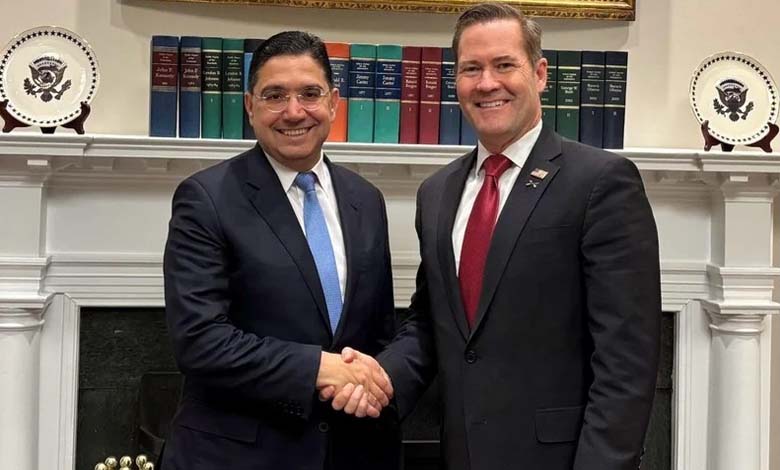Visit of the U.S. Congress to the Moroccan Sahara: A Strategic Reading of Regional and International Dimensions

The visit of a U.S. Congressional delegation to Morocco’s southern provinces is seen by experts not merely as a symbolic reaffirmation of Moroccan sovereignty, but as a significant step toward building new economic and security alliances.
-
Widespread Rejection of Misrepresentations in UN Security Council Report on the Moroccan Sahara
-
Kenya’s stance on Moroccan Sahara dismantles Polisario’s support belts
In a move with clear political and strategic implications, a group of Congressional members traveled to Rabat on Friday, reiterating Washington’s support for Morocco’s sovereignty over the Sahara. This visit comes at a sensitive moment, as Moroccan and American interests increasingly converge in areas such as regional security, counterterrorism, and economic development, while European positions on the Sahara issue remain more hesitant.
Republican Representative Mike Lawler emphasized that the U.S. recognition of Morocco’s sovereignty over its Sahara provides a solid foundation for strengthening investments in the southern provinces. He noted that this recognition is not a new policy, but rather the continuation of a process launched under former President Donald Trump, grounded in the long-standing ties between the two nations, dating back to America’s recognition of Morocco’s independence in 1777.
-
Larcher’s Visit to the Moroccan Sahara Reflects France’s Interest in Strengthening Cooperation with Rabat
-
Morocco Expands Awareness of the Moroccan Sahara in Central America
Democratic Representative Ritchie Torres highlighted Morocco’s geostrategic dimension, pointing to its position at the crossroads of Europe, the Middle East, and Africa, describing it as Washington’s best strategic partner in North Africa. His remarks underline that U.S.-Moroccan relations now extend well beyond bilateral cooperation to encompass broader security and strategic considerations, particularly in response to regional challenges.
On the European side, positions remain more cautious, especially in countries like Spain and Germany, which continue to adhere to traditional United Nations frameworks regarding the Sahara. Analysts, however, argue that the American visit could influence European decision-makers by strengthening Morocco’s bargaining power and reaffirming its status as a regional player backed by Washington.
-
“The Moroccan Sahara”: Macron supports Rabat’s plan
-
Switzerland Supports a Realistic and Acceptable Political Solution to the Moroccan Sahara Issue
From an economic perspective, this dynamic may encourage European investors to reconsider opportunities in Morocco’s southern provinces, attracted by the political and security stability ensured by Moroccan-American alignment. Likewise, U.S. diplomatic pressure could push some European capitals to gradually open up to Morocco’s 2007 autonomy plan, widely seen as a realistic framework for resolving the dispute.
Ultimately, the Congressional visit is not simply a symbolic gesture, but a strategic advance consolidating Morocco’s role as a bridge between Europe and Africa and as a cornerstone of regional stability. It also creates new possibilities for reinvigorating Europe’s long-stalled approach, with U.S. support providing political cover for European actors to reassess their positions without undermining their diplomatic balance.
Morocco thus appears to be successfully leveraging this favorable international context, strengthening its partnership with Washington, and using its strategic location to encourage Europe toward more pragmatic choices, transforming the Sahara issue from an international dispute into an opportunity for regional and international cooperation.












